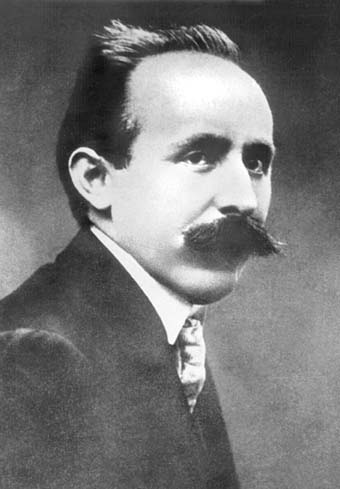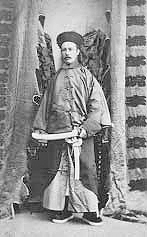|
Rudolf Carl Von Slatin
Major-General Rudolf Anton Carl Freiherr von Slatin, Geh. Rat, (7 June 1857, in Ober Sankt Veit, Hietzing, Vienna – 4 October 1932, in Vienna) was an Anglo- Austrian soldier and administrator in Sudan. Early life Rudolf Carl Slatin was born in Ober Sankt Veit near Vienna, the fourth child of the merchant Michael Slatin, who had converted from Judaism to Roman Catholicism, and his second wife, Maria Anna Feuerstein. Their other children were the twins Maria and Anna (born in 1852), Heinrich (1855), Adolf (1861), and Leopoldine (1864). Their father died on 13 March 1873, while Rudolf was at the Vienna ''Handelsakademie'' (commercial academy). While there, he heard that a German bookseller in Cairo was looking for an assistant. Rudolf traveled to Trieste and five days after that to Alexandria. He worked in the bookstore until he travelled with the German businessman and consul Rosset to Khartoum. From Khartoum, Slatin went through Kordofan to Dar Nuba, exploring the mo ... [...More Info...] [...Related Items...] OR: [Wikipedia] [Google] [Baidu] |
Ober Sankt Veit
Hietzing () is the 13th district of Vienna (). It is located west of the central districts, west of Meidling. Hietzing is a heavily populated urban area with many residential buildings, but also contains large areas of the Vienna Woods, along with Schönbrunn Palace.Statistik Austria, 2007, webpage statistik.at-23450. Wien.gv.at webpage (see below: References). Geography The thirteenth district is located at the western end of the city where it borders the Wienerwald. Liesing is to the south, Meidling to the east and Penzing, which was part of Hietzing until 1954, and Rudolfsheim-Fünfhaus, to the north. Most of the northern border is formed by the River Wien. Traditionally, it is subdivided into six parts: ''Hietzing'' (northeast), ''Unter Sankt Veit'' (northwest), ''Ober Sankt Veit'' (west of Unter Sankt Veit), ''Hacking'' (northwest of Ober Sankt Veit), ''Lainz'' (geographic centre) and ''Speising'' (south). Furthermore, the Lainzer Tiergarten, a large park in the ... [...More Info...] [...Related Items...] OR: [Wikipedia] [Google] [Baidu] |
Trieste
Trieste ( , ; ) is a city and seaport in northeastern Italy. It is the capital and largest city of the Regions of Italy#Autonomous regions with special statute, autonomous region of Friuli-Venezia Giulia, as well as of the Province of Trieste, regional decentralization entity of Trieste. Trieste is located at the head of the Gulf of Trieste, on a narrow strip of Italian territory lying between the Adriatic Sea and Slovenia; Slovenia lies close, at approximately east and southeast of the city, while Croatia is about to the south of the city. The city has a long coastline and is surrounded by grassland, forest, and karstic areas. As of 2025, it has a population of 198,668. Trieste belonged, as Triest, to the Habsburg monarchy from 1382 until 1918. In the 19th century, the monarchy was one of the Great Powers of Europe and Trieste was its most important seaport. As a prosperous trading hub in the Mediterranean region, Trieste grew to become the fourth largest city of the Aust ... [...More Info...] [...Related Items...] OR: [Wikipedia] [Google] [Baidu] |
List Of Governors Of Pre-independence Sudan
The governors of pre-independence Sudan were the colonial administrators responsible for the territory of Turco-Egyptian Sudan and Anglo-Egyptian Sudan, an area equivalent to modern-day Sudan and South Sudan. List (Dates in italics indicate ''de facto'' continuation of office) For continuation after independence, ''see: ''List of heads of state of Sudan See also * Sudan ** Politics of Sudan ** History of Sudan ** List of heads of state of Sudan ** Vice President of Sudan ** List of heads of government of Sudan ** List of current state governors in Sudan * South Sudan ** Politics of South Sudan ** History of South Sudan ** List of heads of state of South Sudan ** Vice President of South Sudan The vice president of South Sudan is the second highest political position obtainable in South Sudan. Additionally, a temporary position called ''first vice president'' was created in August 2015. In 2020, a coalition agreement was reached in ... ** List of current state g ... [...More Info...] [...Related Items...] OR: [Wikipedia] [Google] [Baidu] |
Austro-Hungarian Rule In Bosnia And Herzegovina
Bosnia and Herzegovina fell under Austria-Hungary, Austro-Hungarian rule in 1878, when the Congress of Berlin approved the occupation of the Bosnia Vilayet, which officially remained part of the Ottoman Empire. Three decades later, in 1908, Austria-Hungary provoked the Bosnian Crisis by formally annexing the occupied zone, establishing the Condominium of Bosnia and Herzegovina under the joint control of Cisleithania, Austria and Transleithania, Hungary. History Occupation Following the Russo-Turkish War (1877–1878), in June and July 1878 the Congress of Berlin was organized by the Great Powers. The resulting Treaty of Berlin (1878), Treaty of Berlin caused Bosnia and Herzegovina to nominally remain under sovereignty of the Ottoman Empire, but was de facto ceded to Austria-Hungary, which also obtained the right to garrison the Sanjak of Novi Pazar. According to article 25: The provinces of Bosnia and Herzegovina shall be occupied and administered by Austria-Hungary. The g ... [...More Info...] [...Related Items...] OR: [Wikipedia] [Google] [Baidu] |
Crown Prince Rudolf Of Austria
Rudolf, Crown Prince of Austria (Rudolf Franz Karl Josef; 21 August 1858 – 30 January 1889) was the only son and third child of Emperor Franz Joseph I and Empress Elisabeth of Austria. He was heir apparent to the imperial throne of the Austro-Hungarian Empire from birth. In 1889, he died in a suicide pact with his mistress Baroness Mary Vetsera at the Mayerling hunting lodge. The ensuing scandal made international headlines. Background Rudolf was born at Schloss Laxenburg,"Crown Prince Rudolf (1858–1889)" (museum notes), , 2006. a castle near |
Austro-Hungarian Army
The Austro-Hungarian Army, also known as the Imperial and Royal Army,; was the principal ground force of Austria-Hungary from 1867 to 1918. It consisted of three organisations: the Common Army (, recruited from all parts of Austria-Hungary), the Imperial-Royal Landwehr (recruited from Cisleithania) and the Royal Hungarian Honvéd (recruited from Transleithania). In the wake of fighting between the Austrian Empire and the Kingdom of Hungary and the subsequent two decades of uneasy co-existence, Hungarian troops served either in ethnically mixed units or were stationed away from Hungarian regions. With the Austro-Hungarian Compromise of 1867, the Austro-Hungarian Army was brought into being. It existed until the disestablishment of Austria-Hungary in 1918 following the end of World War I. Common Army units were generally poorly trained and had very limited access to new equipment, because the governments of the Austrian and Hungarian parts of the empire often preferred to ge ... [...More Info...] [...Related Items...] OR: [Wikipedia] [Google] [Baidu] |
Conscription
Conscription, also known as the draft in the United States and Israel, is the practice in which the compulsory enlistment in a national service, mainly a military service, is enforced by law. Conscription dates back to antiquity and it continues in some countries to the present day under various names. The modern system of near-universal national conscription for young men dates to the French Revolution in the 1790s, where it became the basis of a very large and powerful military. Most European nations later copied the system in peacetime, so that men at a certain age would serve 1 to 8 years on active duty and then transfer to the reserve force. Conscription is controversial for a range of reasons, including conscientious objection to military engagements on religious or philosophical grounds; political objection, for example to service for a disliked government or unpopular war; sexism, in that historically men have been subject to the draft in the most cases; and ideol ... [...More Info...] [...Related Items...] OR: [Wikipedia] [Google] [Baidu] |
Lado, Sudan
Lado is a small settlement in Central Equatoria in South Sudan, on the west bank of the White Nile. It is situated north of the modern-day city of Juba. When General Gordon was appointed governor of the Egyptian territory of Equatoria in 1874, he moved his capital from Gondokoro to Lado, which had a healthier climate. In 1878 Emin Pasha was appointed Bey of Equatoria, then nominally under Egyptian control, with his base at Lado. At one point the settlement was capital of the Lado Enclave The Lado Enclave (; ) was a leased territory administered by the Congo Free State and later by the Belgian Congo that existed from 1894 until 1910. Situated on the west bank of the Upper Nile in what is now South Sudan and northwest Uganda, it wa .... Travelling through Africa, Russian explorer Wilhelm Junker stayed in Lado in 1884, and wrote complimentarily of its brick buildings and neat streets.Middleton, p. 300 References Sources * Middleton, J. (1971) "Colonial rule among the Lugbar ... [...More Info...] [...Related Items...] OR: [Wikipedia] [Google] [Baidu] |
Charles George Gordon
Major-general (United Kingdom), Major-General Charles George Gordon Companion of the Order of the Bath, CB (28 January 1833 – 26 January 1885), also known as Chinese Gordon, Gordon Pasha, Gordon of Khartoum and General Gordon , was a British Army officer and administrator. He saw action in the Crimean War as an officer in the British Army. However, he made his military reputation in Qing Dynasty#Rebellion, unrest, and external pressure, China, where he was placed in command of the "Ever Victorious Army", a force of Chinese soldiers led by European officers which was instrumental in putting down the Taiping Rebellion, regularly defeating much larger forces. For these accomplishments, he was given the nickname "Chinese Gordon" and honours from both the Emperor of China and the British. He entered the service of the Isma'il Pasha, Khedive of Egypt in 1873 (with British government approval) and later became the List of governors of pre-independence Sudan, Governor-General of the ... [...More Info...] [...Related Items...] OR: [Wikipedia] [Google] [Baidu] |
Emin Pasha
Mehmed Emin Pasha (born Isaak Eduard Schnitzer, baptized Eduard Carl Oscar Theodor Schnitzer; March 28, 1840 – October 23, 1892) was an Ottoman physician of German Jewish origin, naturalist, and governor of the Egyptian province of Equatoria on the upper Nile. The Ottoman Empire conferred the title "Pasha" on him in 1886, and thereafter he was referred to as "Emin Pasha". Life and career Emin was born in Oppeln (in present-day Poland), Silesia, into a middle-class German Jewish family, who moved to Neisse when he was two years old. After the death of his father in 1845, his mother married a Christian; she and her children were baptized Lutherans. He was a student at the Kolegium Carolinum Neisse in Nysa, Poland, at the universities at Breslau, Königsberg, and Berlin, qualifying as a physician in 1864. However, he was disqualified from practice, and left Germany for Constantinople, with the intention of entering Ottoman service. Travelling via Vienna and Trieste, he st ... [...More Info...] [...Related Items...] OR: [Wikipedia] [Google] [Baidu] |
Theodor Von Heuglin
Martin Theodor von Heuglin (20 March 1824, Hirschlanden, Württemberg5 November 1876), was a German explorer and ornithologist. Biography Heuglin was born in Hirschlanden (now part of Ditzingen) in Württemberg. His father was a Protestant pastor, and he was trained to be a mining engineer. He was ambitious, however, to become a scientific investigator of unknown regions, and with that object studied the natural sciences, especially zoology. In 1850 he went to Egypt where he learnt Arabic, and visited the Red Sea and Sinai. In 1852 he accompanied Dr. Christian Reitz, Austrian consul at Khartoum, on a journey to Ethiopia, and after Reitz's death was appointed his successor in the consulate. While he held this post he travelled in Ethiopia and Kordofan, making a valuable collection of natural history specimens. In 1857 he journeyed through the coast lands of the African side of the Red Sea, and along the Somali coast. In 1860 he was chosen as leader of an expedition to search ... [...More Info...] [...Related Items...] OR: [Wikipedia] [Google] [Baidu] |








